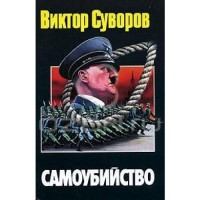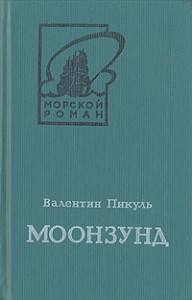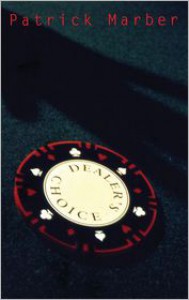Kris' Books.
Female. Slavic mind. Avid reader.
I read across a broad range of book genres, with an emphasis on Aus/NZ lit, Russian and Ukrainian literature, Latin-American literature and European history.

This book is a collection of short stories set in Soviet-era Russia and Germany prior to WW2, during WW2 and post-war.
Though it was interesting to read Vollmann's interpretations of historical figures and events in both countries, I disliked how liberally he strew the theme of sex as an instigator of creativity or impromptu 'casus belli' for all the interpersonal conflicts throughout the texts. That is so typical an approach for American novels of this genre it's irksome to see it in yet another novel. Additionally, the emphasis on sex by the author struck me as disrespectful to the all too eminent pathos which is leavened even in the barebone narratives of the involved historical figures' lives, particularly the Russian ones whose fates turned out to be especially tragic. Since many of the historical figures in the stories were artists, the strong element of pathos to their fates had a somewhat mythopoeic quality, which I felt the author failed to disinter in his writing discussing their legacies, and crudely spat upon it by shuttling forth some trashy sexual fantasy in its place.
Perhaps this may be appealing to someone who doesn't have a penchant for the spiritual and cultural side of things, however I was left with the impression of a unconvincing, superficial piece of writing.
 1
1
Great New Zealand Argument.

A rather interesting collection of essays ruminating and reflecting on the topic of what it means to be a New Zealander, spanning from the 19th Century to the 21st Century, including a variety of different perspectives.
My favourite essay by far in the book was "Fretful Sleepers", for its scathing, albeit often relevant criticism and analysis of the average New Zealander's mentality, which I find has not significantly changed since the author's day. Although it may be viewed by some as a disdainful portrayal of New Zealanders, it is essential for every people to be able to accept a harsh depiction of themselves as a normal part of overall positive cultural development.
I thought the final essay, Tze Ming Mok's "Race You There", raised several important key points in terms of Asian-New Zealander identity, however I felt she delved somewhat into the absurd with her clumsy Asian-Maori solidarity ideas. She approached the matter as though NZ is a racially-strained society on par with countries such as the US, which it certainly isn't.
 1
1
Screw everything

Pretty good narration by an upper-class lawyer in 1920's Croatia who decides he's sick of all the bullshit of socializing, kissing ass, and wearing the thin façade of amiability which his profession and social life demand of him. At a staid formal dinner, he calls the most powerful man in town a reprobate with no moral compass (because it's true), and then suffers all the social and professional consequences.
This could easily be made into a comedy, but it was just a bit too light on irony. It's more comparable to that movie "American Beauty", where Kevin Spacey's character goes through a similar transformation, which also ends in tragedy.
Come to think of it, there seems to be a whole genre of "Aw fuck it" stories about people who are sick of filling all the rigid requirements of respectability, and just give up. I think it might start with Rameau's Nephew (Denis Diderot). のCharles Strickland does this in "The Moon and Sixpence" (Sommerset Maughm), and so does Bob Slocum in "Something Happened" (Joseph Heller). Holden Caulfield seems to have done this, in a manner, at the end of "A Catcher in the Rye" (J.D. Salinger). The unnamed narrator from "Notes From the Underground" (Dostoyevsky) may possibly have done this; it's unclear. Pretty much all of Jack Kerouac's characters have already done it, before the opening act. Sadly, Sinclair Lewis' "Babbitt" never does.
Ironically, through this 'bugger all' attitude the protagonist effectively sharpens into view the inherent fallibility, hyposcrisy, vulgarity and tastelessness of contemporary society.
 1
1
Prescription For Danger

A rather interesting novel about a Christchurch GP inadvertently catapulting himself from the confines of his predictable, comfortable everyday life into the midst of the seedy and hazardous world of the city's Maori gangs, by refusing to prescribe a copious quantity of heavy drugs without any medical basis to a Maori youth who walks into his office one day. Our medical professional is not one to be intimidated by the fact the unruly young man trashed his car immediately afterwards, and goes ahead to try confront the youth for wreaking so much damage to his property. Little does he know into what a cunning trap he was ensnaring himself into...
Though this novel is written in a characteristically quick-paced thriller style, the way Carson has managed to subtly weld a rapprochement of philosophy and NZ history in addition to the action was what made the book memorable for me, its contents ruminating in my mind well after I had put the book down.
The only qualm I have with the novel is that its bottom line boiled down to the all too typical for the genre, "if you don't have a gun, you lose" sort of scenario. I'm a bit too used to seeing this theme override above all else in thriller novels. Plus the overall 'Pakeha-Maori' unity theme left a tad bit unrealistic aftertaste. In reality, it often doesn't work so smoothly as Carson describes. Just ask Witi Ihimaera or Alan Duff.
On the other hand, it's a thriller novel after all. What else do you really need from it other than fast action and a good storyline?
| Diego Marani, New Finnish Grammar (trans. J. Landry). London: Dedalus, 2011, p. 56. |
New Finnish Grammar.

A melancholic yet eerily captivating story about a young man who has been so severely injured he loses his memory and speech ability, set in WW2 Europe. He is taught the Finnish language from scratch by the Finnish doctor, who supposes his patient is a Finn from the 'Sampo Karljanen' tag stitched on the clothing he was wearing when discovered lying beaten to near death on a German quayside, of a nearby ship he was taken upon, then as soon as he garners a minimum ability to reproduce the unconventional phonetics of the Finnish lamguage is sent to Finland, out of the hope that among the icy, unforgiving Nordic landscapes he will discover some trace that will unfurl his memory and help him rediscover his identity.
Exquisitely written, I enjoyed the fact that I was able to relate to the protagonist's feelings of existential crisis and being not just a foreigner in his adopted country but, worse yet, a stranger among all people, incapable to chivvy himself into establishing a profound connection emotionally or intellectually with them because of incertainity about his identity, a great deal. The story ultimately magnifies the importance of language and the memories, history of times erstwhile it keeps alive within its particular anomalities to the future of a nation, as well as the effect memories and language have on individuals. The storyline made me recall plots involving characters pursuing happiness while holding the foolish presumption that happiness isn't a temporary state of mind, that it is something that should be felt at all times, for its similarity to this one in the sense that the protagonist was also pursuing something intangible, within the ruminations of ancient land and the souls of the surrounding people,- his memory and subsequently his identity, esentially his heart, as an individual who seeks to create substantial meaning in his world. It made me wonder about the inextricable connections between memory, language and happiness, three rudimentary aspects of human life.
Additionally, I highly appreciated the references to and supplementary insight provided regarding the Kalevala epic throughout the text, which added a sense of the mystic to the work and gave it a multifaceted finishing. In short, this is a book which has carved a niche to occupy in my heart.
Judas Iscariot by Leonid Andreyev.

This novel is a rather unconventional take of the original story of Judas' betrayal, centred around the question: what if Judas was a good individual, fulfilling God's will as necessary, whereas Christ's apostles were the real traitors, proving too pusillanimous to defend their rhetor?
The result is a mentally stimulating, highly engaging work of literature retelling the story of Judas from an unconventional perspective in third person narration. An idea presented in the text which impacted me most profoundly was that if Judas was a good individual, the best individual, in fact, who are we then? If so, who is good, who can righteously defend good by the end of the day? Where does our salvation lie then? The harsh answers prompted by these questions may be perturbing to a person who does not truly know the underpinnings of human nature, however will strike someone with a more sober, sombre outlook as being replete with keen insight and perspective into human misery and suffering.
In any case, this book by Andreyev has compelled me to get my hands on more of his works. His way of writing truly is unique, but may not be palatable for all.
 1
1

The central question on which this book is based on, as I understood, was where exactly does the modern-day American's belief that everything related to urban centres has negative connotations and living a simple lifestyle in a rustic setting is ideal originate, and what it says about the American nation/culture as a whole. Marx (Leo, no relation of Karl's as far as I gather) sets about to answer this question by examining the imaginations of America's foremost classical authors (e.g Cooper, Thoreau, Melville, Faulkner, Frost and Hemingway) and thus delve in the depths of what Marx calls 'sentimental pastoralism'.
The 'machine' that acted as the focal point of this book was inevitably none other than the train- a symbol of industrial progress in most European states during the late 19th century/ early 20th century and no different in the U.S. The book can be generalised by stating that it is an analysis of how the railroad affected American culture, through the voice of the American canon- whether the railroad interferes with someone's meditation in the countryside or it is the corruption new appliances causes to traditional principles of pastoralism: many examples are provided to demonstrate the rise of sentimental pastoralism in the U.S. According to the author, the American Dream (theoretically) cannot be achieved with the attitudes and environment cultivated by this special kind of pastoralism.
On a personal level, I think what interested me the most in this book was the author's explanation of art as an entity with an ever-evolving definition . Art as it was defined by the European immigrants was completely different from what a modern person would consider to be art. These pre-modern pastoralists believed there was a very distinct mediating ground between "art" and "nature" (an idea that would be difficult to fathom for the averagemodern person). From this Marx proceeds to postulate that
there are two different types of pastoralism, one simple and one complex. The argument is which one of these is better: occupying the middle ground between art and nature, or going for something simpler? In a way, I thought that by the way America has gone it has essentially chosen a simpler kind of relationship with nature, something that no one can agree that is something wholly good.
 I have been fascinated by the legend of Rudel ever since I was a child- a man who at the start of the Second World War was often disparaged by his colleagues for his love of milk and thus was considered by them to be incapable of flying bombers, and by its end had made his name as the Soviet Union's most despised German airman. Only now I have begun to acquire a taste for World War II related literature, which propelled me towards reading this book.
I have been fascinated by the legend of Rudel ever since I was a child- a man who at the start of the Second World War was often disparaged by his colleagues for his love of milk and thus was considered by them to be incapable of flying bombers, and by its end had made his name as the Soviet Union's most despised German airman. Only now I have begun to acquire a taste for World War II related literature, which propelled me towards reading this book. To be honest, I was somewhat disappointed. It's not surprising that Rudel was more noted for his sport/physical abilities than mental abilities as a schoolboy- the writing was more like that of a diary rather than a biography, in need of quite a bit of editing work. The structure was not logical and historical as I would have expected from a biography/memoirs book- everything was scattered (though they were connected) all over the book. In addition, the writing lacked introspection and thorough retrospection of events past, something I find is done at regular intervals in successful books of this genre. This contributed to the overall impression of excessive arrogance as I was progressing through it, and increased as I was approaching its end. Though perhaps I'm making too harsh a judgement- a man like Rudel should be entitled to arrogance. They've earned it. Though I still feel that a motor failing at -40 degrees Celsius is not the only reason his Stuka group's performance was hindered…
I did enjoy the parts when Rudel described his aerial combats- they all very vivid and crisp, giving the reader frame by frame snapshots of how the experience looked and felt like. If for anything, the book is worth reading for those descriptions. It could have been a much better book, all the same.
Samoubiystvo
 I found it very, very difficult to tear myself away from this book. The author certainly knows how to engage the audience in his writing. He specifically aims to steer clear of the monotonous writing style often found in many Russian history books, which he claims prevented many people from thoroughly reading them and discovering their rather obvious inconsistencies. I have to say that reading this book gave the perspective of the Second World War I held so far quite a battering- I had not considered many things he postulated in this work. However, I felt that his analysis was somewhat one-sided, and I am not certain if some aspects are completely accurate. All the same, it is a well-structured book and a very compelling read. I would recommend it to anyone interested in an alternative view of how the Second World War started.
I found it very, very difficult to tear myself away from this book. The author certainly knows how to engage the audience in his writing. He specifically aims to steer clear of the monotonous writing style often found in many Russian history books, which he claims prevented many people from thoroughly reading them and discovering their rather obvious inconsistencies. I have to say that reading this book gave the perspective of the Second World War I held so far quite a battering- I had not considered many things he postulated in this work. However, I felt that his analysis was somewhat one-sided, and I am not certain if some aspects are completely accurate. All the same, it is a well-structured book and a very compelling read. I would recommend it to anyone interested in an alternative view of how the Second World War started.
 This is the second time I have read this book from front to back. I read it for the first time when I was 11. At the time I recognised the Slavic motifs present, but did not understand the actual story...but it has continued to haunt me, so I decided to read it again. I found the story to be relatable in many ways. However, it did not really appeal to me. It seemed too autobiographical- nothing new or original (it reminded me too much of dialogues with relatives). It should be taken into account that it's not an easy task to write an authentic, readable story with so much folklore and motifs woven into it. Having said this, Ugresic is definitely an author whose other works I will read.
This is the second time I have read this book from front to back. I read it for the first time when I was 11. At the time I recognised the Slavic motifs present, but did not understand the actual story...but it has continued to haunt me, so I decided to read it again. I found the story to be relatable in many ways. However, it did not really appeal to me. It seemed too autobiographical- nothing new or original (it reminded me too much of dialogues with relatives). It should be taken into account that it's not an easy task to write an authentic, readable story with so much folklore and motifs woven into it. Having said this, Ugresic is definitely an author whose other works I will read.
 A really engaging and interesting book to read. I would recommend this one to anyone interested in a historical fiction novel concerning Russia's Baltic fleet of World War I. The time is 1917, so plenty of insight into the Russian revolution, and how it affected officers and sailors in the navy, is provided. Besides the history involved, the character development and overall writing style is marvellous.
A really engaging and interesting book to read. I would recommend this one to anyone interested in a historical fiction novel concerning Russia's Baltic fleet of World War I. The time is 1917, so plenty of insight into the Russian revolution, and how it affected officers and sailors in the navy, is provided. Besides the history involved, the character development and overall writing style is marvellous.
 Judging by the era in which the drama was written, I had half-expected the play to be an in-your-face Sarah Kane exemplar. It was not as such. The dialogue between the characters impressed me as quite sparse, but not stiff. The language was colloquial, the type you'd expect from the characters involved, but not meant to shock. I was not unfamiliar with the main theme, which concerned addiction to poker and its consequences. It reminded me of Nikolai Gogol's play 'Gamblers'(Игроки), however not as well developed. In that play, the protagonist said "The point of life is to deceive everyone so well they will not suspect they were deceived" close to the end of the play, only to realise he had been deceived as no one else had allowed themselves to be deceived. In this play, everyone seemed to want to deceive themselves as well as others. Only for poker, not really for winnings as in Gogol's play. There seemed to be many threads running through the play, but they were not connected directly, leaving plenty of room for imagination and interpretation. I would have enjoyed the play much more if it were more developed in terms of themes and structure, however I think the character development was well done.
Judging by the era in which the drama was written, I had half-expected the play to be an in-your-face Sarah Kane exemplar. It was not as such. The dialogue between the characters impressed me as quite sparse, but not stiff. The language was colloquial, the type you'd expect from the characters involved, but not meant to shock. I was not unfamiliar with the main theme, which concerned addiction to poker and its consequences. It reminded me of Nikolai Gogol's play 'Gamblers'(Игроки), however not as well developed. In that play, the protagonist said "The point of life is to deceive everyone so well they will not suspect they were deceived" close to the end of the play, only to realise he had been deceived as no one else had allowed themselves to be deceived. In this play, everyone seemed to want to deceive themselves as well as others. Only for poker, not really for winnings as in Gogol's play. There seemed to be many threads running through the play, but they were not connected directly, leaving plenty of room for imagination and interpretation. I would have enjoyed the play much more if it were more developed in terms of themes and structure, however I think the character development was well done.
 I found this book completely by accident in the local library's biography section, sandwiched between a Green Day biography and some other volume about another band I don't hold much regard for. I was very excited- I enjoy metal music very much, and it's not every day you find a well-written book about a band that, albeit, is not your favourite, however all the same you respect very much.
I found this book completely by accident in the local library's biography section, sandwiched between a Green Day biography and some other volume about another band I don't hold much regard for. I was very excited- I enjoy metal music very much, and it's not every day you find a well-written book about a band that, albeit, is not your favourite, however all the same you respect very much. The initial excitement waned at a steep rate as I realised that a great proportion of the book regarded things that I had already learned otherwise. I was also annoyed by the way the author felt obliged to stick in his 5 cents every so often- the ignobleness was difficult to overlook. If the author had been involved in the band somehow, perhaps I would be more lenient with his views. Nevertheless, I did enjoy the excerpts from interviews I had not read about earlier. The way the band's history was reconciled in a shelved, biographical manner for easy reference if necessary also appealed to me. Perhaps I would have been more enthusiastic about this book if I were more of a Slayer fan, but the fact remains that I think this book deserves no more than three stars.

I was not sure how to write a coherent review to this book for some time. The story was short, but very complex, encompassing a variety of themes and spanning many notions. If that were the only problem I had digesting this book- the story itself was unlike anything I had read before, and it drastically altered my perspective on certain situations and relationships. I think this book will lurk in the corners of my mind for a considerable amount of time afterwards.
The protagonist of this story is Darka, whom we meet as a Kyivan eighth-grader, and leave as a grown woman. As soon as Darka introduces herself, the reader learns of her friend and classmate Lentsja, a fantastically beautiful fille whose passions have reached the same mature degree of refinement as her looks. As Lentsja tells Darka one evening, "I want to fit all the beautiful things in this world into myself… I feel like I'll fall apart if I don't". To spite the traditional notions of beauty and love,their relationship advances from close friendship to a sexual one within a short space of time, along a steep gradient… however, Lentsja does not stop at this. It is not long before she begins to 'fill herself with beauty' by having sexual relations with other girls, boys and even teachers. Hereupon the audience reads how both Darka and the voracious Lentsja both become broken as women. Darka survives into adulthood alone. As she convalesces from her adolescent adventures, Darka muses to herself:
(rough translation from Ukrainian) "After all, you can not have infinity, right? ... And Lentsja, give it back, you yourself demanded it - but this other notion, which cannot catch up with the initial ones, already only skates through the mind, not reaching into the deep: Darka sees herself stiff in the mirror, with the clothes hangers, from which hangs the fate of a long silk dress, and suddenly it's silly, begone a face with a childish expression: as such, a self-understood realisation- it is impossible to have infinity. And all our claims to become something more than we are - money, men, experience, credentials, dresses, cars - are only pathetic, ridiculous attempts to get closer to beyond infinity, adding up to a meagre sum digit by digit. We need to achieve this somehow else, but how?… "
I have broken this book down into some sort of addlepated palubum, but still I have not described it fully. I should mention that this book is written in a most fulgurant style (not quite poetic), consisting of very long, compound sentences composed of many, many pleasingly archaic, soul-gladdening words. The effect is that although you may not have experienced what the narrator Darka is describing, you will be able to relate in some way to what she feels or thinks because there is some common, comprehendable sense in the words she uses. It's a truth everyone can comprehend.Reading the book, you get the impression that there are no transitory pauses to mark different phases of the book, making it difficult to discern different themes and topics if you are not careful. In addition to what I described earlier, the book also explores the issues (and issues with these issues) of feminism, love, beauty and sexuality,as well as what it means to be a successful woman in a male-dominated or patriarchal society, somewhere between the whims of the storyline. If I have read a truly amazing book this year, it is this one.


